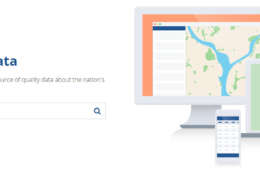Open Data/Transparency
-
The Department of Energy (DoE) is looking for relevance in a political atmosphere that doesn’t focus so much on pure research as it does on saving taxpayer money
August 11, 2017 -
Whether you're a federal agency or a contractor, cybersecurity has become too important to leave solely to the tech staff. The worst threat these days seems to be the insider threat. Addie Cliffe and Evan Wolff, attorneys with the privacy and cyberscurity group at Crowell Moring, joined Federal Drive with Tom Temin to offer advice on how to take a corporate approach.
July 28, 2017 -
NASA and EPA share concerns for balancing cybersecurity and use of IoT, but how they approach those concerns depends on agency mission — and budget.
July 19, 2017 -
A surprising number of initiatives from the Truman and Eisenhower administrations and the Congresses of that era remain alive and relevant in today's government. Now you can find the Congressional Record from the 1950s online. That's thanks to a digitizing effort by the Government Publishing Office. Laurie Hall, GPO's acting superintendent of documents, shares the details on Federal Drive with Tom Temin.
July 18, 2017 -
Two months after the Digital Accountability and Transparency Act implementation, the DATA Act is proving to not only be a source of financial accountability, but a beacon, platform, and self-help tool for managing government.
June 30, 2017 -
Even if your people don't handle classified information, you can learn a lot from the National Insider Threat Task Force.
June 21, 2017 -
These COOs frequently occupy deputy secretary positions that require Senate confirmation, many of which are vacant in the current administration. But it’s the people occupying these offices that are best positioned to make real changes in the way agencies perform their missions.
June 20, 2017 -
Census Bureau Chief Data Officer Zach Whitman says among the hopes for the site is to serve as a bridge between users who are more familiar with "data-data" and those more versed in geospatial data.
June 16, 2017 -
The Center's recommendations include establishing an API for legislative data, addressing the LGBT data gap, and requiring corporate data transparency.
June 12, 2017 -
When it comes to data analytics at federal agencies, other areas for improvement include access and ownership, and avoiding the habit of sticking to the status quo.
June 07, 2017 -
While technology is embraced nearly everywhere, Congress is still a paper-based institution. Seamus Kraft is among those working to expose Congress’ technological handicaps and promote ways to make government more open, accessible and efficient.
June 05, 2017 -
It is not uncommon for a federal agency to claim it is data-driven, but how true is that statement? The Securities and Exchange Commission is one example of an agency that uses large amounts of data for up-to-date analyses. Kevin Compher, lead data scientist in the Cloud Strategies and Enterprise Data Platform group within the SEC, joined Federal Drive with Tom Temin to give a true sense of how much data the agency depends on.
May 17, 2017 -
The Government Accountability Office's two-year assessment found there are gaping vulnerabilities where federal policy and industry standards haven't kept up with the developing technology.
May 16, 2017 -
April Chen, a senior product manager for Iron Mountain, said agencies should start by assessing their current classification schemes and taxonomies to understand if they need to be updated or even rebuilt entirely.
May 15, 2017 -
In part two of Federal News Radio's special report on the DATA Act, experts say the common spending standards can help agencies with their missions, and are trying to understand what it will take to reach full compliance by 2022.
May 11, 2017
















